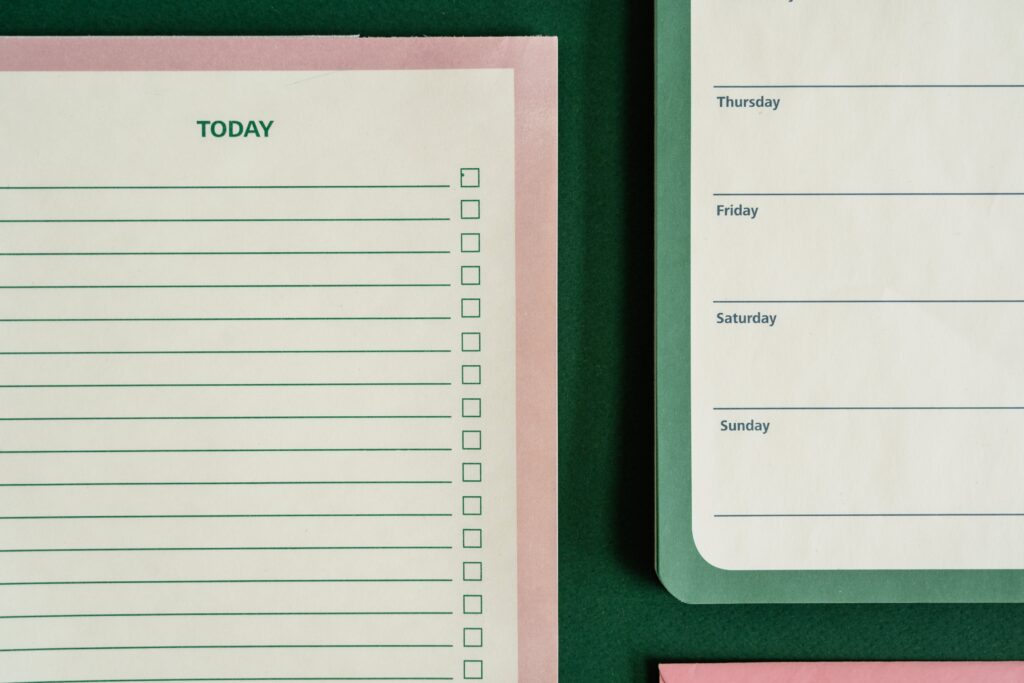11 Tips to Create the Most Effective Study Plan for Students
Creating an effective study plan is one of the most important skills for high schoolers to have. Here are 11 tips to help you out!

Creating an effective study plan is a total game-changer when it comes to crushing your academic goals and making the most of your study time. With finals, big projects, and daily homework piling up, a solid plan can help you tackle everything without feeling overwhelmed.
But it’s not just about blocking off hours in your schedule—it's about figuring out what works best for you, setting clear goals, and staying on track. An effective study plan helps you break down your workload into manageable pieces, set achievable targets, and keep tabs on your progress. It’s all about finding a rhythm that fits your style—whether that’s dedicating specific time slots to each subject, taking regular breaks to keep your brain fresh, or tweaking your approach as you go.
Plus, having a plan in place can make studying feel less stressful and more organized, so you stay motivated and focused. By the end, you’ll have a solid blueprint for turning study time into productive sessions that help you smash your academic goals. Let’s dive in and get you set up for success!
This post is all about creating an effective study plan.
Effective Study Plan
1. Evaluate Your Current Workload

Start by thoroughly evaluating your current study habits and workload to identify what’s working and what isn’t. Reflect on aspects like how much time you dedicate to studying each week, which subjects you find challenging, and how effectively you use your study time.
For instance, if you notice that you consistently struggle to keep up with math assignments but excel in history, this insight can help you adjust your study plan. You might decide to allocate more time to math, seek additional help through tutoring, or explore different study techniques that could better support your learning.
By understanding your strengths and weaknesses, you can tailor your study plan to address specific areas needing improvement, ultimately leading to a more effective and personalized approach to studying.
2. Set Clear Goals

Setting clear, specific goals is crucial for creating a focused and effective study plan. Start by defining what you want to achieve, such as improving your GPA, acing a particular exam, or mastering a difficult subject.
For example, instead of a vague goal like “do better in science,” set a specific target such as “increase my science test scores by 10% by the end of the semester.” Breaking down this goal into actionable steps—like studying specific chapters each week, completing practice problems, and reviewing notes regularly—provides a clear roadmap to success.
By setting well-defined goals, you give yourself a concrete direction and a measurable way to track your progress, which can significantly boost your motivation and focus.
3. Break Down Goals into Smaller Tasks

Large goals can seem overwhelming, so breaking them down into smaller, manageable tasks can make them more achievable. For example, if your goal is to prepare for a comprehensive final exam, divide it into smaller tasks such as reviewing individual chapters, summarizing key concepts, and completing practice exams.
Create a checklist or a detailed plan for each of these tasks, and tackle them one at a time. This approach not only makes the task less daunting but also helps you make steady progress. Each completed task provides a sense of accomplishment and keeps you on track toward achieving your larger goal.
By breaking down goals into smaller steps, you can maintain focus, manage your time more effectively, and reduce feelings of overwhelm.
4. Prioritize Tasks

Prioritizing tasks is crucial for managing your workload effectively and ensuring that you address the most important responsibilities first.
Start by listing all your tasks and assignments, and then rank them based on their urgency and significance. For example, if you have an upcoming math test and a research paper due next month, prioritize studying for the test first. Break down each task into smaller steps and tackle high-priority items before moving on to less urgent ones. Prioritization helps you focus on what’s most critical and prevents last-minute cramming or missed deadlines.
By addressing tasks in order of importance, you can manage your time more effectively and reduce stress associated with looming deadlines.
5. Create Study Blocks

Crafting a study schedule is essential for managing your time effectively and ensuring that you cover all necessary material. Start by analyzing your weekly routine and identifying blocks of time available for studying.
Allocate specific time slots for each subject or task, and be realistic about how much time you can commit each day. For example, you might schedule 30 minutes for math every weekday evening and an hour for history on weekends. Include buffer time for unexpected events or additional study needs.
A well-organized schedule helps you balance your study time with other commitments, reduces procrastination, and ensures that you stay on top of your coursework. By adhering to a structured study schedule, you can enhance your productivity and make steady progress toward your academic goals.
6. Use a Planner or App

Utilizing a planner or app can significantly enhance your organizational skills and help you keep track of your study schedule and deadlines.
Choose a tool that suits your preferences, whether it’s a physical planner, a digital calendar, or a study app. For instance, you can use Google Calendar to set reminders for study sessions and deadlines. You can also use apps like Todoist to create and manage task lists. Input all your deadlines, exams, and study sessions into your chosen apps. Be sure to regularly review and update it to stay organized.
By using a planner or app, you can ensure that you don’t miss important dates. You'll also be able to manage your time efficiently, and maintain a clear overview of your responsibilities.
7. Incorporate Breaks

Incorporating regular breaks into your study sessions is essential for maintaining focus and preventing burnout. For example, you can use the Pomodoro Technique, where you study for 25 minutes and then take a 5-minute break.
During breaks, engage in activities that help you relax and recharge. This can be stretching, taking a walk, or listening to music. Breaks not only help refresh your mind. They also improve your productivity by allowing you to return to your studies with renewed energy and focus.
By balancing study time with regular breaks, you can sustain your concentration. You can also reduce stress, and make your study sessions more effective.
8. Mix Up Your Study Methods

Mixing up your study methods prevents monotony and keeps your study sessions engaging. Use a variety of resources and approaches to reinforce your learning.
For instance, you might combine reading textbooks with watching educational videos, participating in interactive quizzes, and working through practice problems. By using different methods, you can address various learning styles and reinforce your understanding through multiple channels.
For example, if you’re studying history, you might read chapters, watch documentaries, and discuss key events with a study group. This variety not only makes studying more interesting but also enhances your comprehension and retention of the material.
9. Set Specific Time Limits

Setting specific time limits for study sessions helps you stay focused and manage your time effectively.
For example, allocate 45 minutes to study a particular subject. Follow that with a 10-minute break, and then switch to another task. Use a timer or an app to track your study periods. Make sure that you stick to the time limits you’ve set.
By defining clear boundaries for each study session, you can prevent procrastination. You can also maintain a sense of urgency, and ensure that you make the most of your study time. Time limits also help you balance your study sessions with other activities and commitments.
10. Prepare for Each Study Session

Preparing for each study session ensures that you make the most of your study time. Before starting, review your goals for the session and gather all necessary materials, such as textbooks, notes, and practice questions.
For example, if you plan to study for a chemistry exam, have your textbook, notes, and any online resources ready before you begin. A clear plan and preparation help you stay focused and organized, making your study sessions more productive and efficient.
By setting up a structured approach to each study session, you can maximize your time and achieve better results.
11. Stay Motivated

Keeping yourself motivated is essential for maintaining focus and making steady progress. Celebrate small achievements and milestones to stay encouraged and reinforce positive behavior.
For instance, reward yourself with a treat or a relaxing activity after completing a challenging task or reaching a study goal. Setting up a reward system can help sustain your enthusiasm and commitment to your study plan.
Additionally, remind yourself of your long-term goals and the reasons why you’re working hard. By staying motivated, you can maintain a positive attitude, overcome obstacles, and continue progressing toward your academic objectives.
This post was all about creating an effective study plan.
Related Posts You Might Like: 9 AMAZING STUDY STRATEGY TIPS TO TRY RIGHT NOW
1 comment
Comments are closed.